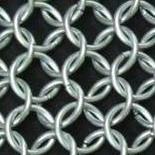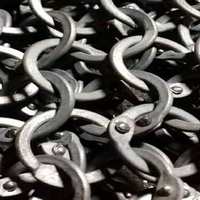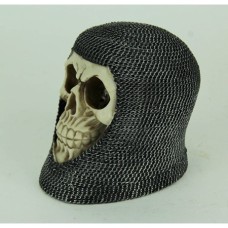Actually, there are four types of ring closings used in chainmail: butted, riveted, welded and punched. But only the first three types are historically accurate: butted, riveted, and punched.
Interesting that until the XIV century Europe used alternating rows of flat riveted rings and punched rings in chainmail. However, with time punched rings almost gone and European chainmails became mostly riveted. At the same time, butted ring closings used significantly less (except in Japan, Philippines and some other).
That is why for our armor we use only historical and practical ones - butted

and riveted-punched.

As you can see from their names:
- In butted ring its both ends just brought together without mechanical connection of them;
- In riveted ring its both ends are overlapping each other and fixed by the pin. And such flat riveted rings alternating with punched rings (such weaving type is highly resistant to both slashing and stabbing and reduce the chance of the rings splitting open from the hits).
Butted rings are easier to product, less expensive and easier maintain (that is why it often used for modern day reenactment), but chainmail strength composed and depends only from the strength of the rings. By the other side, chainmail with riveted-punched rings need much more time and efforts to produce, but such chainmail will be much stronger then butted one (especially against the arrows) and has less weight.
That is why chainmail with riveted-punched rings adds additional costs to armor price.
Which one to choose? It’s your decision, weigh the historical accuracy, the protection and price you are willing to pay for it and make an order.




0 Commentaires
Steel-mastery.com